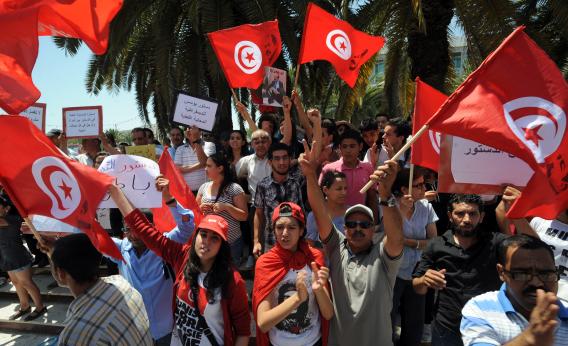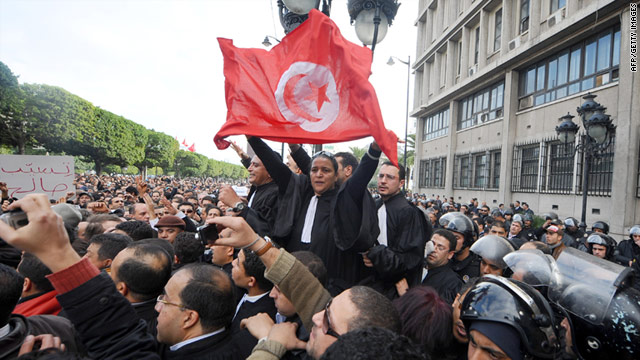Tunisia celebrated the third anniversary Tuesday of its uprising, but political divisions have hampered the adoption of a new constitution by this symbolic deadline.
Tunisia celebrated the third anniversary Tuesday of its uprising, but political divisions have hampered the adoption of a new constitution by this symbolic deadline.
Tunisia's leaders launched a low-key ceremony in the Kasbah district of the capital, where the government's headquarters are located, to mark the event.
President Moncef Marzouki, outgoing prime minister Ali Larayedh and his designated successor, Mehdi Jomaa, all attended the ceremony along with other top officials.
Demonstrations, notably by Larayedh's Ennahda party, are expected during the day on Habib Bourguiba avenue, epicenter of the mass protests that drove long-time autocrat Zine El Abidine Ben Ali from power on January 14, 2011 and inspired revolts across the Arab world.
By 0900 GMT several hundred people had already gathered there, while police had been deployed heavily around Tunis, including outside shopping centers.
Clouding the anniversary was the country's heavily delayed future charter, which was due to have been agreed on by Tuesday but remains a work in progress.
A third of around 150 articles in the text have yet to be examined after nearly two weeks of debate, and key provisions have been rejected by lawmakers during fractious sessions in parliament in recent days.
These include articles on the eligibility criteria for the head of state and the prerogatives of the prime minister, with lawmakers also rejecting a crucial article on the government's role in nominating judges, after an acrimonious debate in the national assembly.
An alternative provision must now be negotiated.
Tunisians are awaiting the formation of a caretaker government of technocrats by the end of next week under Jomaa, the non-partisan former industry ministry tasked with leading the country to fresh elections.
His appointment last week came under an agreement to end months of political deadlock, triggered by the assassination of an opposition MP last year by suspected Extremist militants, and get Tunisia's democratic transition back on track.
It also followed the voluntary resignation of Ennahda, which swept to power in Tunisia's first free elections in October 2011 but whose tenure has been overshadowed by a sharp rise in violence, ongoing social unrest and two political crises.
